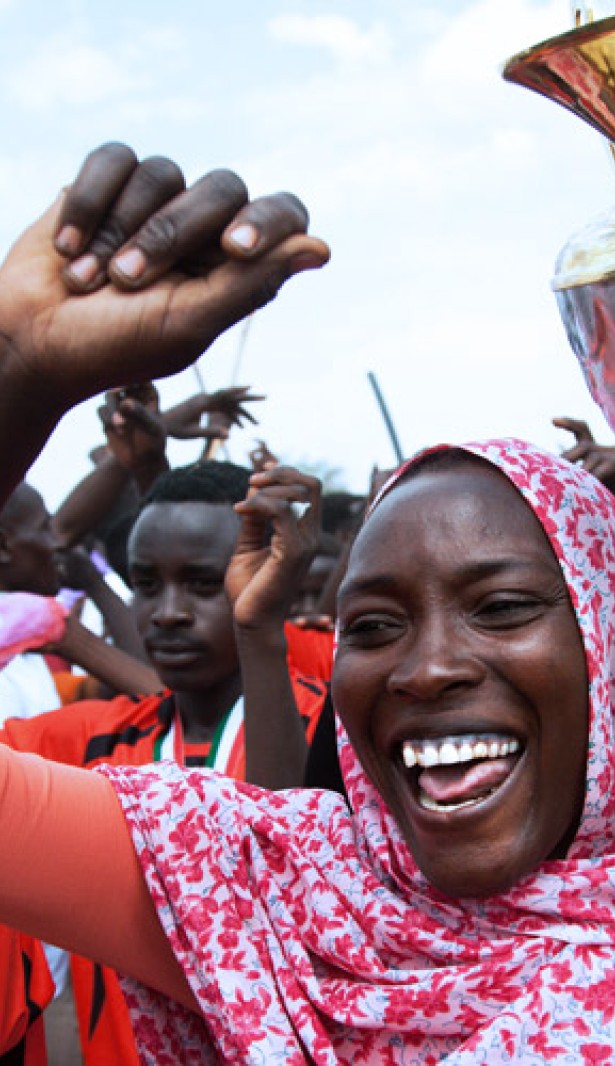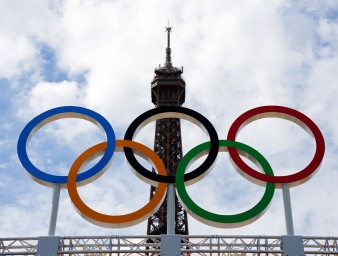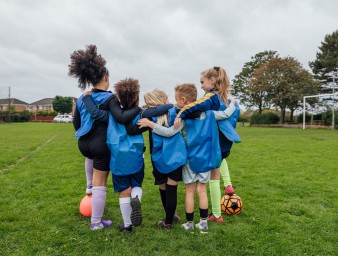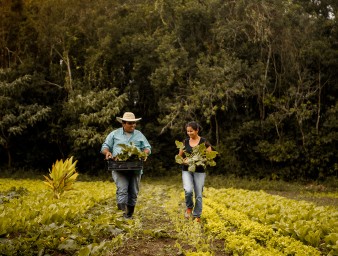“Sports and human rights give me hope”
11 October 2018
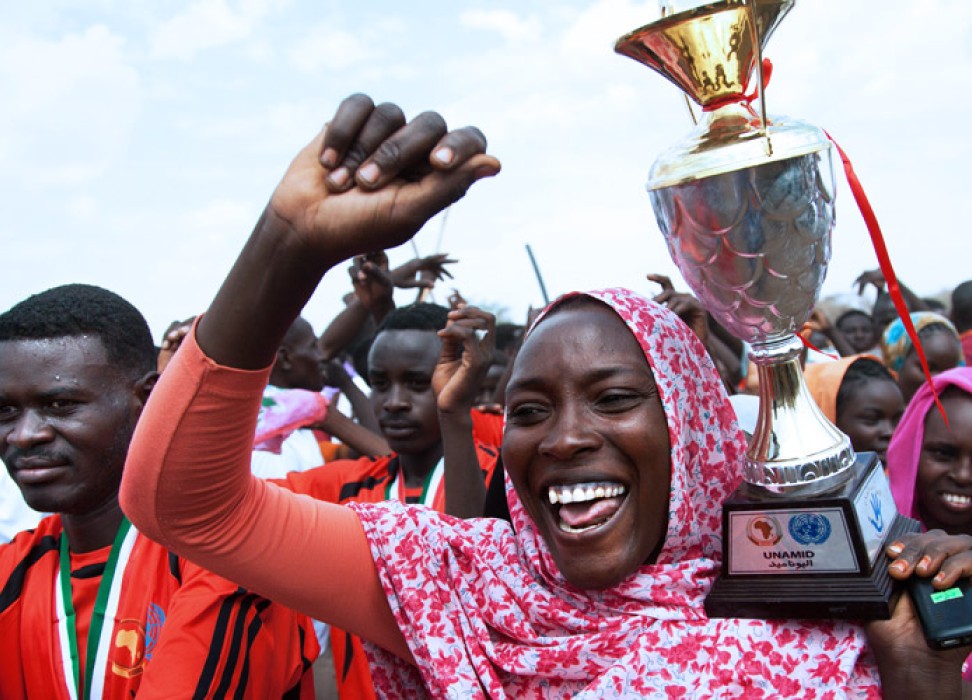
For Rose Lokonyen, athletics literally changed her life.
She was living in a refugee camp in Northern Kenya, having fled her native South Sudan in the dead of night when she was only ten years old. While attending a sports day in the camp, a teacher suggested Lokonyen run a 10 km race. With no training, she did so and took second place.
A year later, she lined up with other middle distance runners in the 2016 Summer Olympics in Brazil as part of a team of refugee athletes, the first in the Games’ history.
“Sport has given me hope because being an athlete gives you courage,” she said. “What I can say to my fellow refugees is never give up in life. No one chooses to be a refugee, but as long as you are able, you can do.”
Lokonyen was one of many athletes who took part in discussion about human rights and sports, in particular the Olympic ideal, during the Social Forum. The Forum provides civil society organisations, Member States and intergovernmental agencies the opportunity to interact on an informal level on a variety of subjects and their relationship to human rights.
This year, the link between sport, the Olympic ideal and human rights was the theme. At first glance the connection may not be readily apparent, said, UN High Commissioner for Human Rights Michelle Bachelet. Like human rights, sports are about fairness and equal opportunities. They promote cooperation and empowerment.
“Sports can become a powerful tool for integration,” she said. “When a newcomer to a country becomes a top athlete, that success inspires respect. But it is not just about a few stars. The integration of many migrants into a new society – including women and people from vulnerable groups – often begins with the language of sports.”
For two-time Olympic gold medalist and Kenyan running legend Kipchoge Keino, sport, human rights and the Olympic ideal are vital much like an athlete’s efficient breathing technique: easy to learn, seamless and natural in practice. Keino, who runs a foundation to provide homes and assistance to vulnerable young athletes from across East Africa, said sports help unite our most basic bond.
“Humanity is the only thing,” he said. “We come into this world with nothing, and we leave with nothing. But in between, we learn.”
Sport is one of the best vehicles for promoting human rights, said Andrew Parsons, President of the International Paralympic Committee. So through the Paralympic movement, which celebrates its 70th anniversary this year, it has become the number one sporting event to drive social inclusion, he said.
“Sport has the unique unifying power to attract and inspire, bringing together and empowering people of all backgrounds, free from discrimination,” Parsons told the Forum.
Sports is also a conduit for identity and culture, said Taily Terena from the World Indigenous Games. Terena, who is a member of the indigenous Terena tribe of Brazil, said participation in the Indigenous Games, shows people outside the community the real face of indigenous people, while at the same time, allowing them to preserve and embrace their traditions.
“People have these images, these stereotypes of indigenous people that we are in the jungle, that we are naked, the same ideas from colonisation,” she said. “But with the games, we provide a bridge. I can use my body painting, my headdress, my earrings -- just as my ancestors. But I can also be at the same time living in a city with my cell phone and wear jeans. I think that this is the link between sport and human rights. In the indigenous games we get to show that we are humans. We can be who we are.”
11 October 2018
